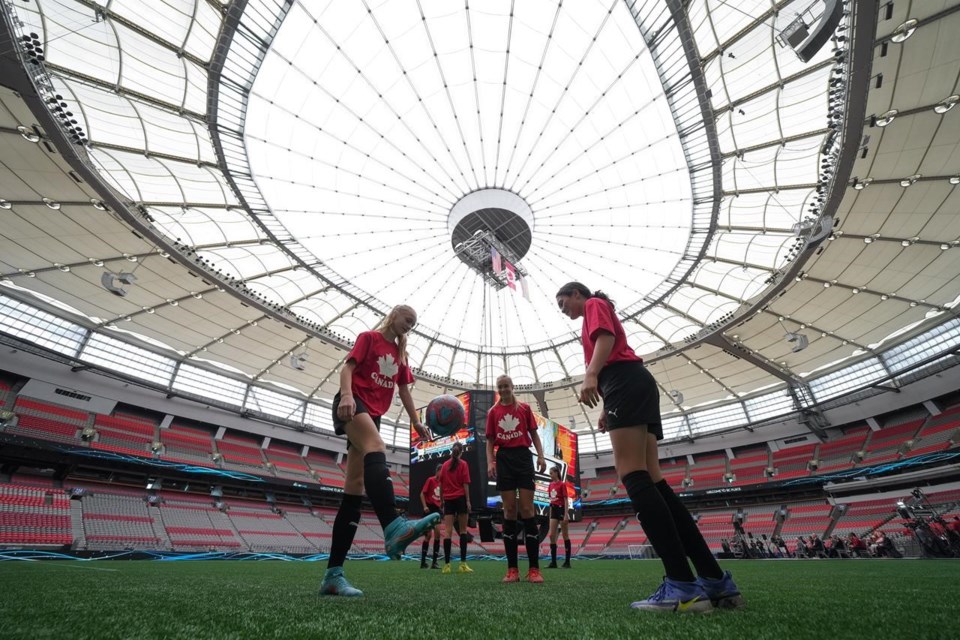VANCOUVER — The City of Vancouver says it's unable to give a complete estimate of costs associated with hosting 2026 FIFA World Cup matches because it is hosting two more games than originally anticipated.
The original cost, released by the provincial government at the end of January 2023, pegged the bill for hosting five World Cup matches as $230 million, with much of that money going towards event security.
But with the addition of hosting two more games the original estimate is out of date, the city said.
"We will be assessing the impacts of delivering seven matches against current assumptions in order to update these estimates," the city said in its statement.
"While we’re still in the early stages of analyzing the impact of hosting seven matches, we expect to see increased revenue opportunities from commercial partners and match day sales."
The city said it is discussing the additional games with FIFA — the international body governing soccer — to determine anticipated costs and benefits, with no set date for the information to be released.
But a sports economic expert said estimates for any large scale sporting event tend to be wrong.
"The fact that the cost estimate, regardless of how many games, is going to be different is not surprising at all," said Brian Soebbing, a professor at the University of Alberta.
"Because the majority of studies that have looked at the cost of hosting mega events, whether you're talking about Olympics, World Cup, et cetera, the costs themselves are generally underestimated."
Soebbing also raised doubts about the economic benefits host cities tend to proclaim when hosting large scale sporting events.
"Part of the idea of economic impact is you've got these visitors who are coming for the sole purpose of going to the World Cup. But Vancouver in and of itself is a very good tourist city in any year, right?
"There are going to be people who were going to go to Vancouver but are not going to go to Vancouver because of the World Cup."
Part of the issue, Soebbing said, is the fans coming for the World Cup will push out regular tourist groups or tours that would come to Vancouver and the region at the same time, meaning the economic benefit of sports fans is balanced out by the loss of other groups.
The cost estimate for hosting does not include renovating B.C. Place, with PavCo — the Crown corporation that owns the stadium — putting out a request for proposal in December for a construction manager to oversee work needed.
PavCo’s RFP for a construction manager indicates B.C. Place, which turned 40 last year, will need more VIP suites and hospitality space on the stadium’s third level, an upgrade to food-court concessions, renovation of washrooms and installation of more elevators.
Toronto and Vancouver are the Canadian cities set to host matches during the 2026 World Cup, which will also be played across the United States and Mexico.
The cost of hosting additional games is an issue affecting Toronto as well.
The City of Toronto estimates it will cost $380 million to host World Cup matches in the city, an increase of $80 million compared to a 2022 forecast partly because of the addition of another match to the schedule.
The cost increase also includes an evaluation of vendor quotes, safety and security requirements and inflationary uncertainty.
This report by The Canadian Press was first published March 5, 2024.
Nick Wells, The Canadian Press



